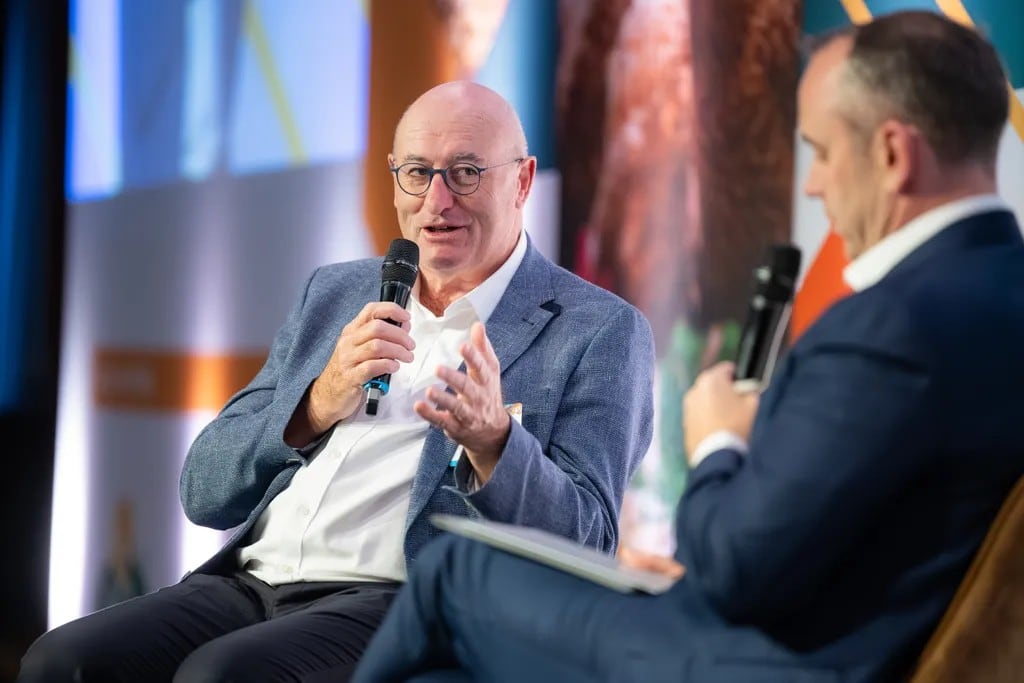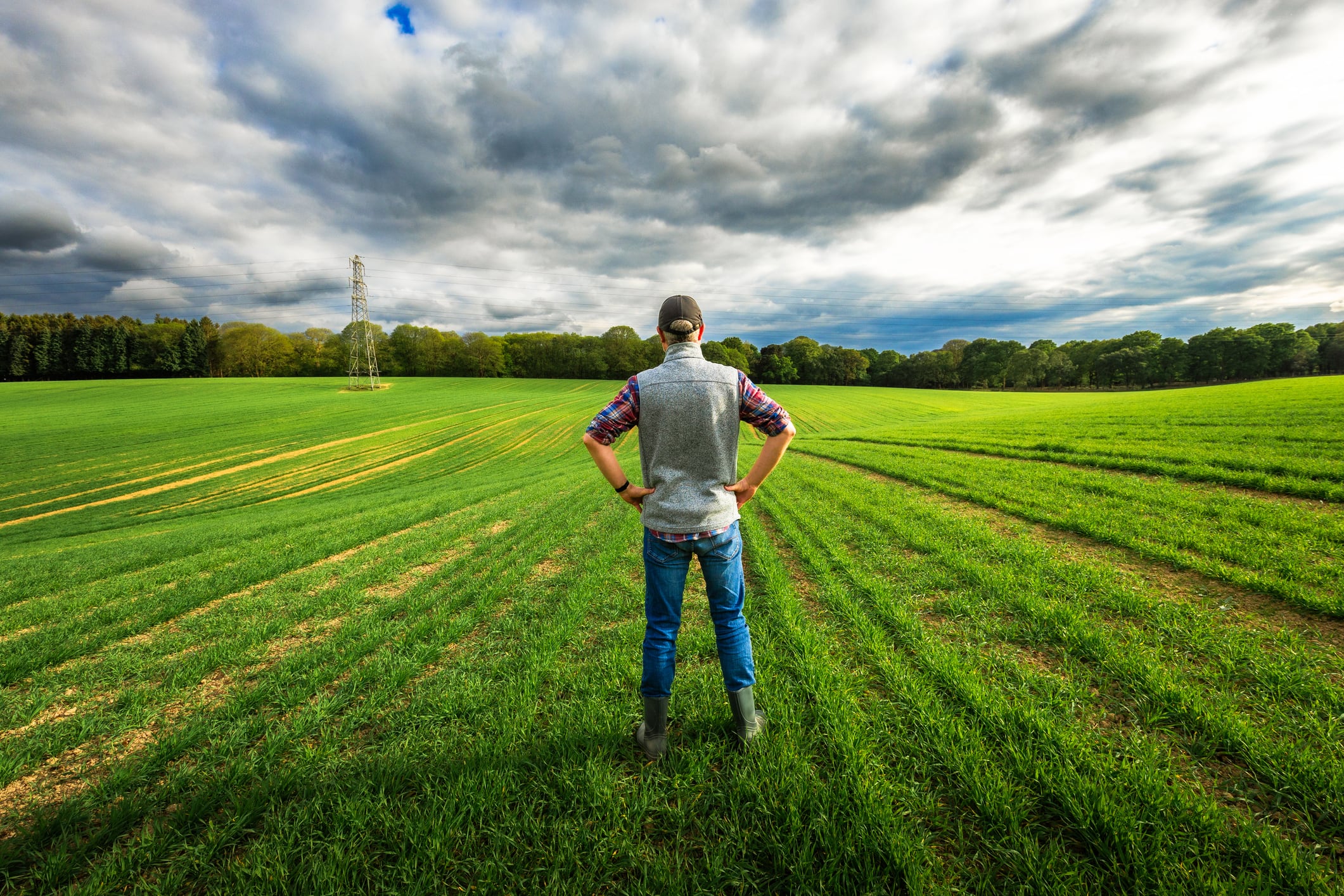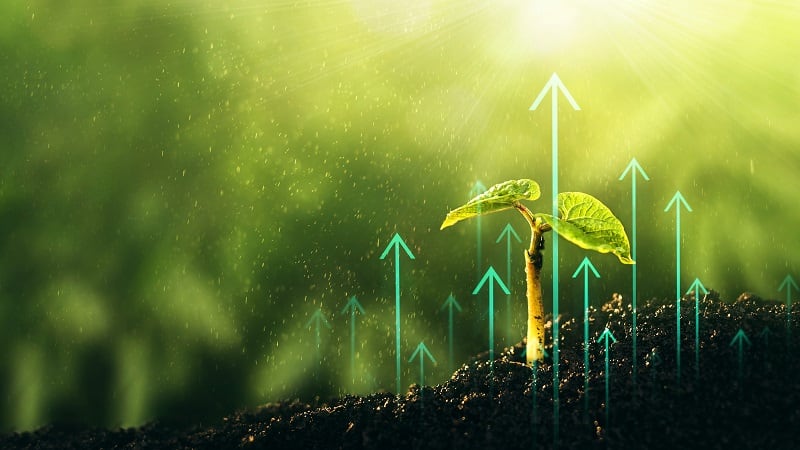“Trump hit the ground running, and you can see after 10 months how much activity he has generated and the disruption in supply chains and indeed in policy,” warned Phil Hogan, former EU Commissioner for Agriculture and Trade, setting the tone for a wide-ranging discussion with Justin McCarthy, CEO of Glasport Bio and former editor of the Irish Farmers Journal, at the recent Animal AgTech Innovation Summit in Amsterdam.
The conversation explored how European agriculture can navigate a turbulent global trade environment, balancing disruption from US policy, rising protectionism, and the evolving ambitions of the Common Agricultural Policy (CAP).
A disruptive US agenda
Reflecting on his experience negotiating with Donald Trump, Hogan described the current US President as “more prepared than he was in his previous term,” emphasizing that unpredictability would define US-EU trade relations. “Framework agreements with the US are political agreements, not trade agreements…which means he can change his mind anytime,” he explained.
Court challenges to proposed tariffs may clarify some issues by the end of the year, but uncertainty remains.
Europe’s strategic pivot
Hogan stressed that Europe must assert its independence while remaining flexible. “We cannot simply align with the US against China.”
All options need to be kept open, independently of the US, so the EU can trade wherever it wishes around the world, he commented.
He described the situation as an opportunity for agriculture. Despite initial skepticism from farm organisations, Europe is growing in importance in its trade relationships for agriculture, including with countries like Japan and Canada. He stressed the need to maintain as many outlets as possible for products to generate demand and competition at lower costs and duties worldwide. South America’s growing role in global agriculture was also highlighted, with Brazil increasingly orienting toward Asia. Hogan warned that if Europe does not pursue trade deals globally, it risks undermining its role as a geopolitical entity.
Rules, reform, and the WTO
Hogan acknowledged the challenge Trump poses to international trade norms. “He doesn’t believe in rules, and he doesn’t believe in the World Trade Organization (WTO). He wants to go back to the old GATT system, where he puts the other entity across the table and does a bilateral deal.”
Yet he emphasized that the WTO still functions in a plurilateral sense. “Eighty countries out of the 180 countries are actually working together in dispute resolution. Just because the Americans are out doesn’t mean there’s nothing happening.”
Globalization vs. protectionism
McCarthy highlighted a broader trend in agriculture and trade: “If you look back at the last 10 years of agriculture, a lot of it - and trade as a lot of it - has been about globalization. The last two years have probably been more about protectionism.”
Hogan agreed that protectionist pressures are rising but said that Europe as a whole must remain committed to trade. He stressed the importance of deepening relationships within the single market and pursuing global trade missions to expand opportunities beyond the EU.
CAP, sustainability, and innovation
Turning to the CAP, Hogan emphasized the importance of conditionality. “Conditionality is what I introduced as commissioner in relation to payments to farmers. If you’re getting some money, that’s the time when you have their full attention. You have to deliver public goods alongside core policy objectives.”
On supporting technological innovation, Hogan said that giving farmers a lump sum for major breakthrough innovations would provide the scale of funding needed to adopt modern equipment and advanced practices. Such one-off, substantial investments can accelerate the uptake of precision agriculture and reduce the need for farmers to repeatedly apply for smaller grants.
Balancing budgets, security, and food production
Hogan acknowledged that CAP budgets face competing pressures, including security and defence. “We have to make food security part of security and defence. Food security could slip down in importance because of what’s happening with security and defence on our continent, and that’s something we have to watch out for.”
Regarding climate policy, he noted that while some EU Green Deal ambitions may be scaled back, sustainability remains central. “Europe will continue to have a decarbonisation agenda.”
Member state accountability
On effort-sharing regulations and potential fines, Hogan was unequivocal: “I have no sympathy for member states that have neglected to implement what they should have been doing 10 years ago and five years ago. They got every warning. They got every opportunity to implement new technologies.”
Europe cannot afford complacency, according to Hogan. In a world shaped by geopolitical shocks, shifting trade blocs, and tightening budgets, adaptation is survival. Europe’s strength, he argued, lies in its ability to stay open to trade, invest in innovation, and ensure that the CAP continues to underpin food security.
“Europe must hold its nerve,” he stressed.





